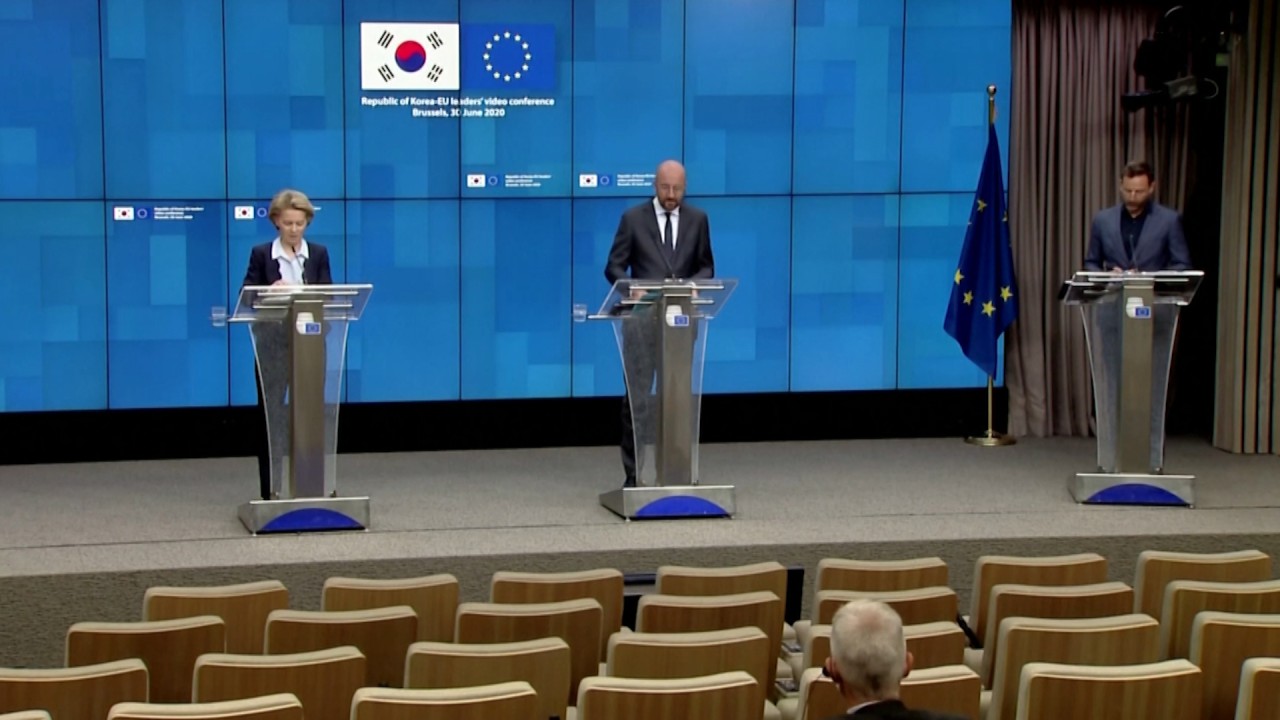European Union ‘deplores’ Beijing’s move to pass national security law for Hong Kong
- Brussels says legislation passed on Tuesday ‘risks seriously undermining the city’s high degree of autonomy’
- EU is considering its response with lawmakers and international partners

“We deplore this decision,” European Council President Charles Michel said on Tuesday after the sweeping law was unanimously passed by Beijing’s top legislative body.
“This law risks seriously undermining the high degree of autonomy of Hong Kong, and having a detrimental effect on the independence of the judiciary and the rule of law.”
European Commission head Ursula von der Leyen added: “Many across Europe, including in the European Parliament, have made similar statements, so we remain in touch with our international partners on this matter, and will pay careful attention on how to respond.”

00:55
EU ‘deplores’ China’s decision to enact national security law for Hong Kong
In Britain, Foreign Secretary Dominic Raab said Britain was “deeply concerned”.